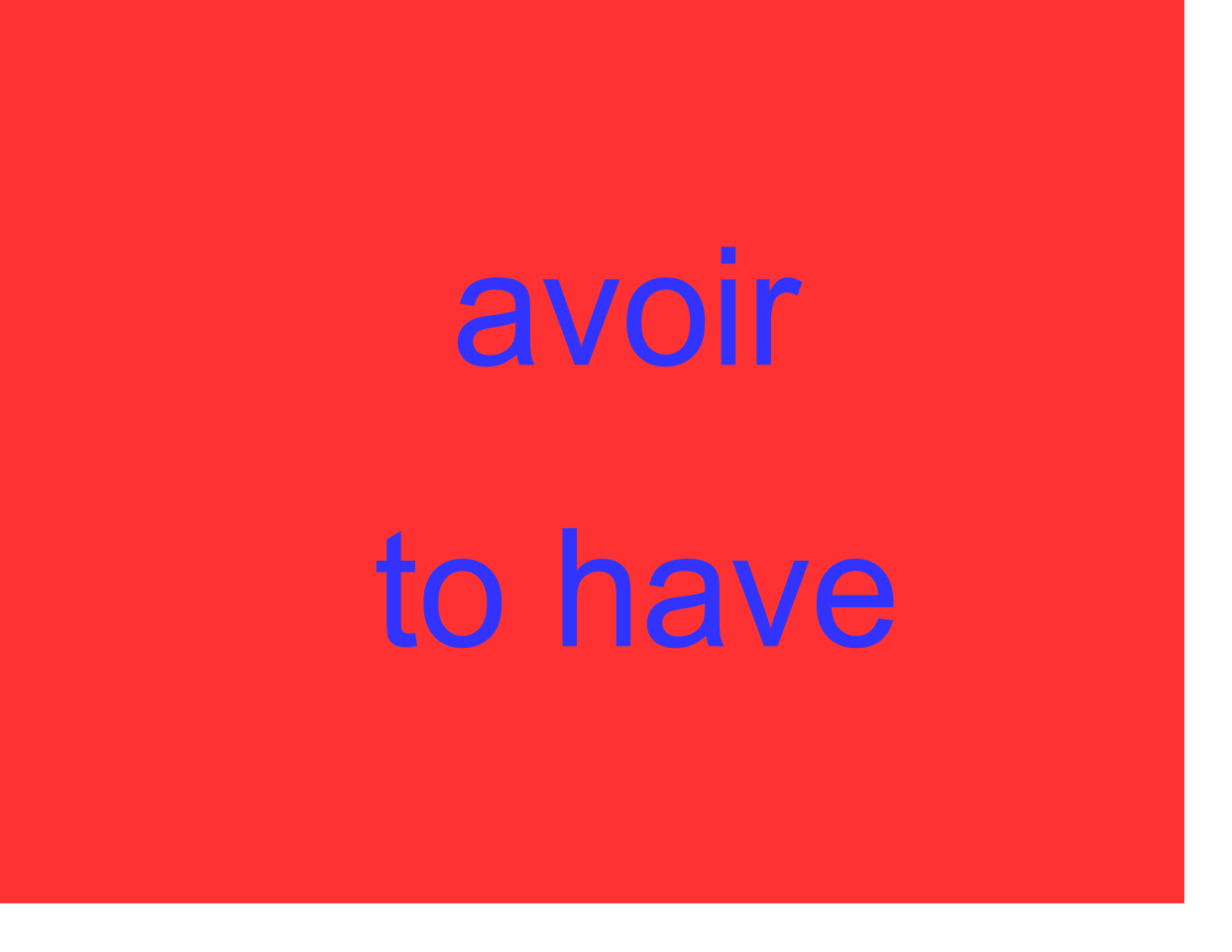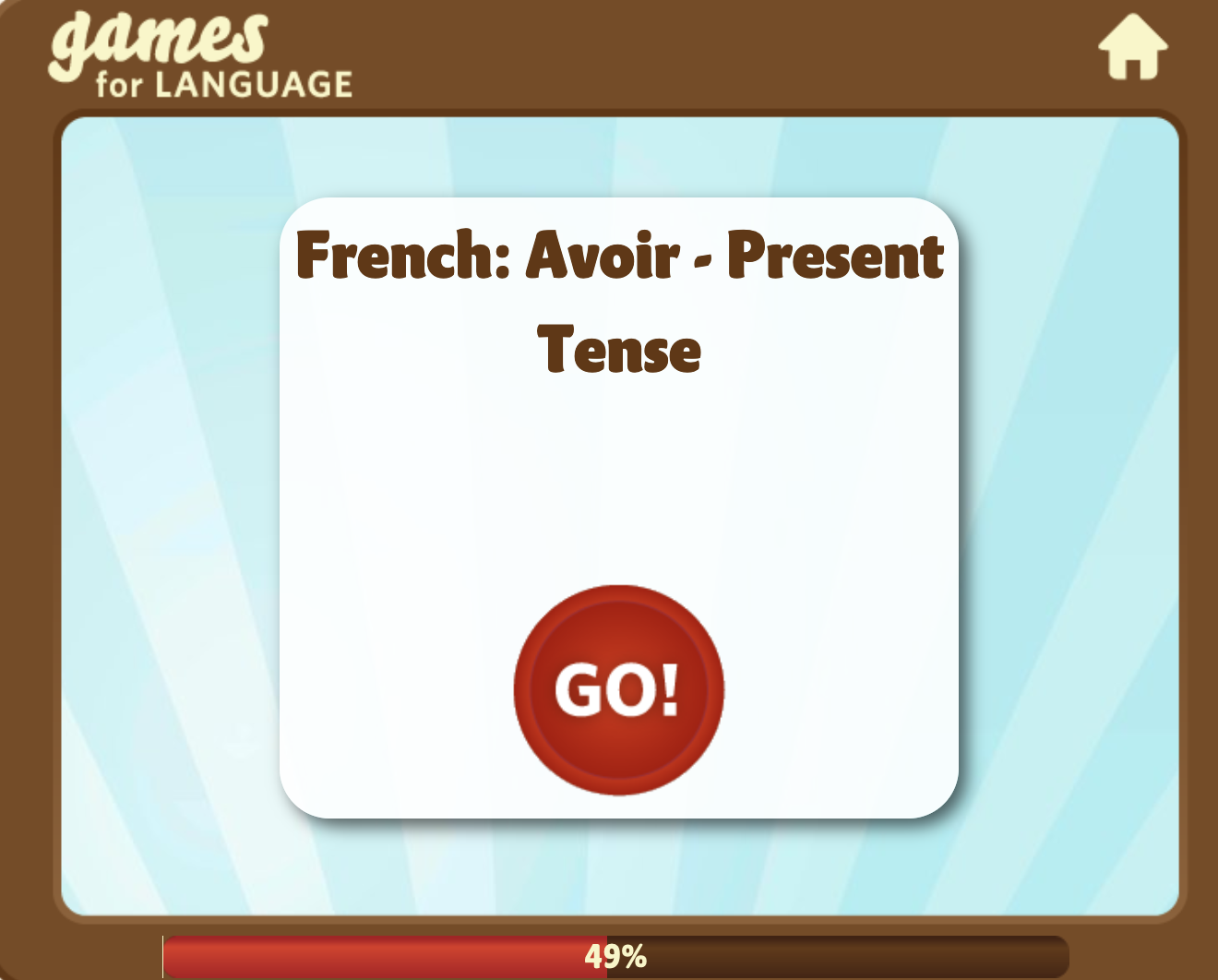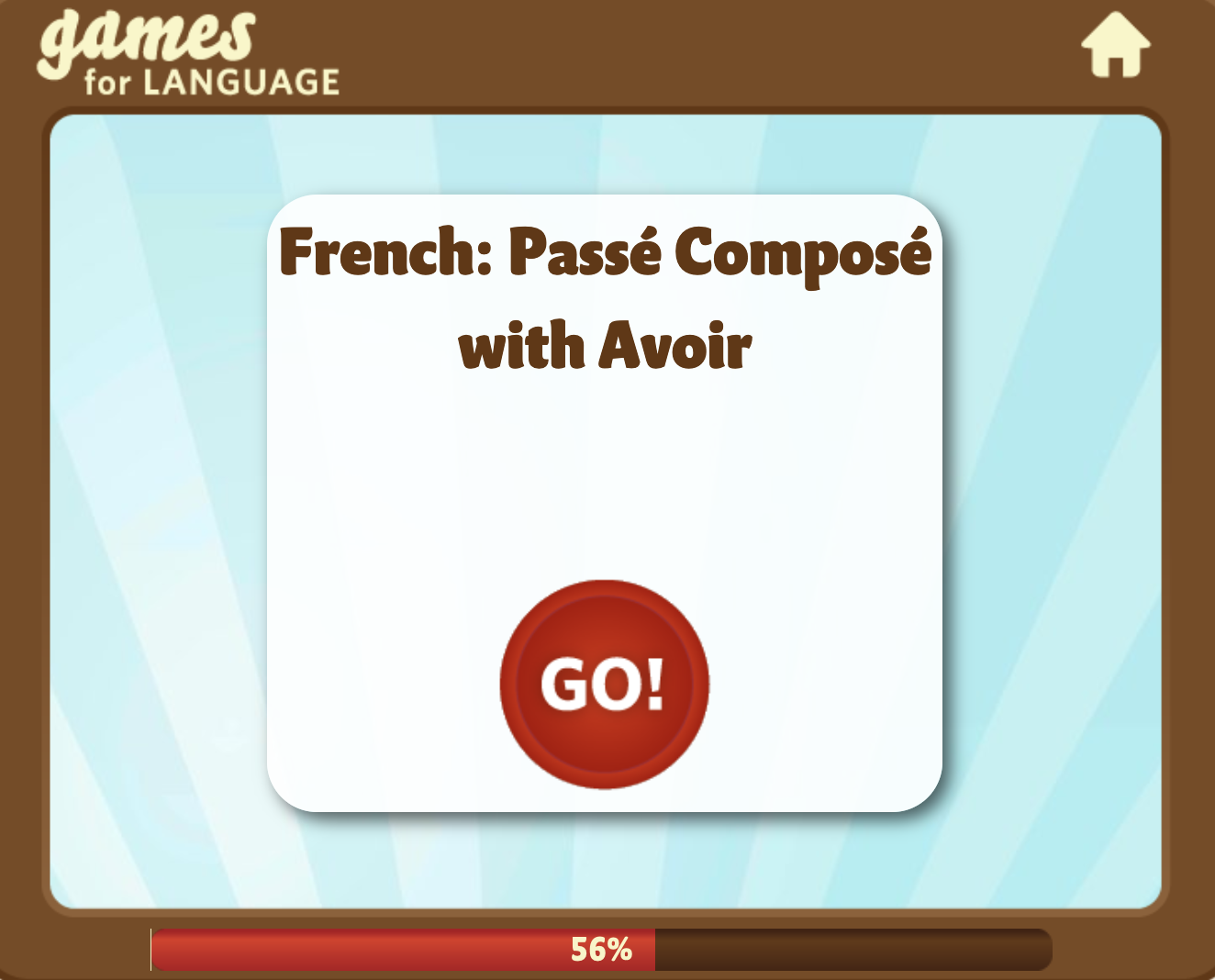French "avoir": 20 expressions and 2 language games
 Today we'll take a look at the French verb "avoir", with 20 expressions and 2 language games for practice.
Today we'll take a look at the French verb "avoir", with 20 expressions and 2 language games for practice.
In English "avoir" means "to have", as in "j'ai un soeur" - "I have a sister". But "avoir" also appears in many idiomatic expressions, which are often used in daily conversations.
For some of the expressions, the meaning is pretty obvious. These are the ones that typically combine a form of the verb "avoir" with a noun. In idiomatic English you would use either just a verb, or the verb "to be" plus an adjective. For example: "Elle a du charme" - "She's charming."
For other expressions, it's hard to guess what they really mean. That's because you cannot easily infer the meaning from the individual words.
In either case, idiomatic expressions are fun to use and will make your French sound more natural.
(You'll find the 2 French language games, one to practice the Present Tense, the other with the Passé Composé, below after the 20 French expressions.)
20 Common French Expressions
1. avoir besoin de
Meaning: to need
Literally: to have need of
Sentence: Tu as besoin de quelque chose ? (Do you need anything?)
2. avoir faim
Meaning: to be hungry
Literally: to have hunger
Sentence: J'ai vraiment faim. (I'm really hungry.)
3. il y a
Meaning: there is, there are
Literally: it here/there has
Sentences: Désolé, il y a erreur. (Sorry, there's a mistake.)
Il y a beaucoup de monde à la plage. (There are a lot of people at the beach.)
Il y a du soleil aujourd'hui. (It's sunny today.)
4. il y a + time phrase
Meaning: - ... ago
Literally: it here/there has
Sentences: Je l'ai vu il y a deux semaines. (I saw him two weeks ago.)
Je l'ai connu il y a quelques années. (I met him a few years ago.)
5. avoir l'air
Meaning: to look, seem
Literally: to have the air
Sentences: Ce gâteau a l'air bon. (This cake looks good!)
Tu as l'air fatigué. (You look tired.)
Il a l'air triste. (He looks sad.)
6. avoir envie de [qch]
Meaning: to want [sth]
Literally: to have wish/desire of [sth]
Sentence: Tu as envie d'une glace? (Do you want an ice cream?)
7. avoir envie de faire
Meaning: to want to do, feel like doing
Literally: to have desire to do
Sentence: J'ai envie de voyager. (I want to travel.)
8. avoir soif
Meaning: to be thirsty
Literally: to have thirst
Sentence: Oui, nous avons soif. (Yes, we are thirsty.)
9. avoir mal à la tête
Meaning: to have a headache
Literally: to have ache in the head
Sentence: Il a toujours mal à la tête. (He always has a headache.)
10. avoir peur de
Meaning: to be afraid of [sth, sb]
Literally: to have fear of
Sentences: Ils ont peur de moi. (They are afraid of me.)
Moi, j'ai peur des araignées. (Me, I'm afraid of spiders.)
11. avoir de la peine à faire [qch]
Meaning: to have trouble doing [sth]
Literally: to have some pain/trouble/effort/sorrow
Sentences: J'ai de la peine à comprendre ça. (I have trouble understanding that.)
J'ai de la peine à croire ça. (I can hardly believe that.)
12. avoir des soucis
Meaning: to be worried, have problems
Literally: to have some worries/trouble
Sentence: Je sais qu'il a des soucis d'argent. (I know that he has money worries.)
13. avoir tort
Meaning: to be wrong
Literally: to have fault
Sentence: Tu as tort, ce n'est pas le mien. (You're wrong, that's not mine.)
14. avoir lieu
Meaning: to take place
Literally: to have place
Sentence: Ce marché a lieu tous les samedis. (This market takes place every Saturday.)
15. avoir X ans
Meaning: to be X years old
Literally: to have X years
Sentences: Il a quel âge? (How old is he?)
Il a vingt ans. (He's twenty.)
16. avoir le cafard
Meaning: to be depressed, feel blue
Literally: to have the cockroach
Sentence: Ma soeur ne veut pas sortir. Elle a le cafard. (My sister doesn't want to go out. She's depressed.)
17. avoir beau + infinitive
Meaning: to do something in vain
Literally: to have beautiful
Sentence: J'ai beau essayer, je n'y arrive pas. (However hard I try, I just can't do it. )
18. avoir beau jeu
Meaning: to be easy [to do sth]
Literally: to have beautiful game
Sentence: Il a beau jeu de protester. (It's easy for him to protest.)
19. avoir du pain sur la planche
Meaning: to have a lot to do
Literally: to have bread on the shelf
Sentence: Je ne peux sortir ce soir, j'ai du pain sur la planche. (I can't go out this evening, I'm swamped.)
20. en avoir marre de
Meaning: to be fed up with/sick of
Literally: It's unclear what the origin of "marre" is.
Sentences: J'en ai marre de faire mes devoirs. (I'm sick of doing homework.)
J'en ai marre de cette voiture. (I'm fed up with this car.)
The verb "avoir" is frequently used in conversations, both in its meaning "to have", or as part of idiomatic expressions. Becoming familiar with its forms is a good start. So, go ahead and try those two games below.
2 French language games for fun practice
 The first French language game lets you practice the present tense forms of "avoir", and five of the idiomatic expressions above.
The first French language game lets you practice the present tense forms of "avoir", and five of the idiomatic expressions above.
With many verbs, the French passé composé is formed with the present tense of "avoir". In the second French language game, you can review several passé composé forms with "avoir". You would use this tense in French to talk about a one-time event or action that took place in the past.
In the second French language game, you can review several passé composé forms with "avoir". You would use this tense in French to talk about a one-time event or action that took place in the past.
Bio: Ulrike Rettig is the co-founder of GamesforLanguage.com. She's a lifelong language learner, growing up in Austria, the Netherlands, and Canada. You can follow her on Facebook, Twitter and Instagram, and leave any comments right here!
